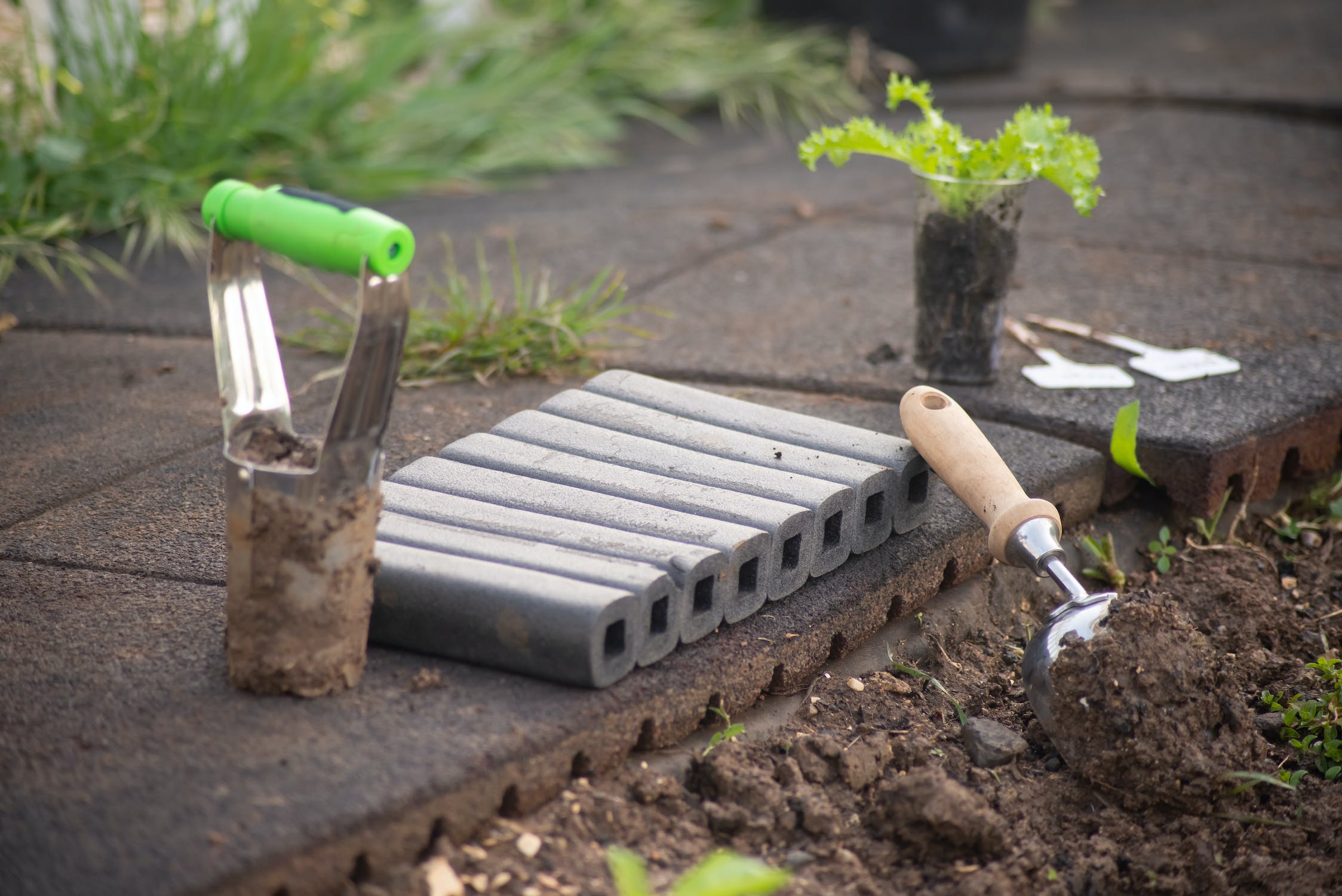Gardening is not just a hobby; it’s an art form that requires the right tools to flourish. Whether you’re a seasoned gardener or just starting out, having the right tools at your disposal can make all the difference in your gardening endeavors. In this comprehensive guide, we’ll explore the essential garden tools that every gardener should have, ensuring that your gardening efforts yield beautiful, healthy plants and a garden that’s the envy of the Empire.
The Essentials: Must-Have Garden Tools
Hand Trowel
A hand trowel is indispensable for planting, transplanting, and potting. Look for one with a sturdy handle and a durable, rust-resistant blade.
Pruning Shears
Pruning shears are essential for trimming plants, cutting back overgrown branches, and shaping your garden’s overall appearance.
Garden Fork
A garden fork is perfect for turning soil, aerating, and breaking up dense soil, making it easier for plant roots to grow.
Spade
A spade is used for digging, especially when creating new beds or planting trees and shrubs. Its sharp, flat blade makes it a garden staple.
Rake
A rake is crucial for clearing leaves and debris, as well as for smoothing soil surfaces before planting.
Watering Solutions for Every Garden
Watering Can
A watering can with a long spout allows you to water plants at the base, minimizing moisture on leaves and preventing disease.
Hose with Adjustable Nozzle
An adjustable nozzle can provide a gentle mist for delicate plants or a strong stream for deep watering.
Drip Irrigation Systems
For efficient watering, consider installing a drip irrigation system, which delivers water directly to the base of each plant.
Soil Care and Cultivation
Cultivator
A cultivator helps to mix compost or fertilizer into the soil,
improving soil health and promoting plant growth.
Soil Knife
The soil knife is a versatile tool used for weeding, transplanting, and slicing through soil bags.
Garden Hoe
A traditional garden hoe is excellent for shaping soil and removing weeds with its sharp, flat edge.
Compost Aerator
A compost aerator is essential for turning compost, allowing oxygen to speed up the decomposition process.
Plant Health and Maintenance
Fertilizer Spreader
A fertilizer spreader ensures even distribution of fertilizer, promoting uniform growth throughout your garden.
Disease and Pest Control Sprayers
Sprayers are vital for applying organic or chemical treatments to combat pests and diseases affecting your plants.
Advanced Tools for Serious Gardeners
Electric or Gasoline-Powered Tillers
For larger gardens, a tiller can save time and effort by efficiently preparing beds for planting.
Leaf Blowers
A leaf blower is a quick way to clear your garden of leaves and debris, keeping it neat and tidy.
Chainsaws
For substantial pruning tasks or removing trees, a chainsaw can be a necessary addition to your toolshed.
Garden Tool Maintenance and Care
Cleaning and Sharpening
Regular cleaning and sharpening of your garden tools can extend their life and make gardening tasks easier.
Proper Storage Techniques
Storing your tools in a dry, organized space prevents rust and keeps them in good condition for the next gardening season.
Ergonomic Tools for Comfortable Gardening
Ergonomic Design Importance
Ergonomically designed tools reduce strain and fatigue, making gardening more enjoyable and sustainable.
Recommended Ergonomic Tools
Look for tools with padded handles, lightweight materials, and designs that match your body’s mechanics.
Innovations in Gardening Tools
Smart Gardening Gadgets
From soil moisture sensors to smart sprinkler systems, technology can make gardening more efficient and fun.
Eco-Friendly Tools
Choosing tools made from sustainable materials not only benefits the environment but also supports green gardening practices.
The Art of Pruning
Pruning Saws
For thicker branches, a pruning saw with a curved blade makes clean cuts without damaging the plant.
Hedge Shears
Perfect for shaping hedges and bushes, hedge shears help maintain clean lines and dense foliage.
Loppers
Loppers extend your reach and provide the leverage needed for cutting through thicker branches.
Sustainable Gardening Tools
Manual Lawn Mowers
A manual lawn mower offers an eco-friendly alternative to electric or gas-powered mowers, with the added benefit of quiet operation.
Solar-Powered Tools
Solar-powered garden lights and water features add beauty and functionality to your garden without increasing your carbon footprint.
Container and Small Space Gardening Tools
Miniature Tools
For gardening in small spaces or containers, miniature tools make planting and maintenance tasks easier and more precise.
Vertical Gardening Accessories
Vertical gardening systems and wall planters maximize space and bring greenery to even the smallest outdoor areas.
Seasonal Gardening Tools
Snow Shovels
In colder climates, a snow shovel is necessary for clearing paths and protecting your plants from heavy snowfall.
Leaf Rakes
A leaf rake with flexible tines is gentle on your lawn and effective at gathering fallen leaves in the autumn.
Choosing the Right Tools for Your Garden
Assessing Your Garden’s Needs
Consider the size and complexity of your garden when selecting tools, ensuring you have the right equipment for your gardening tasks.
Quality vs. Price
Investing in high-quality tools can save money in the long run, as they are more durable and perform better than cheaper alternatives.
The Role of Technology in Modern Gardening
Apps and Online Resources
Gardening apps and websites offer valuable advice, plant identification, and garden planning tools to enhance your gardening knowledge.
Technological Tools for Precision Gardening
Advanced tools like robotic lawn mowers and garden monitoring systems can help maintain your garden with minimal effort.
Gardening Safety Equipment
Gloves
Gardening gloves protect your hands from thorns, chemicals, and soil-borne pathogens.
Knee Pads
Knee pads provide cushioning and support, making tasks like planting and weeding more comfortable.
Protective Eyewear
Safety glasses shield your eyes from harmful UV rays and flying debris when using power tools.
The Most Useful Garden Tools for Empire Gardening
Equipping yourself with the right garden tools is the first step toward creating a thriving garden. From basic hand tools to advanced gardening equipment, each tool plays a crucial role in maintaining plant health, soil quality, and the overall beauty of your outdoor space. By selecting tools that match your gardening needs and maintaining them properly, you can enjoy the rewards of a vibrant, healthy garden for years to come.
Conclusion
Gardening is a rewarding activity that connects us to nature and provides a sense of accomplishment. With the right tools in hand, you can transform your outdoor space into a thriving oasis. Remember, the key to a beautiful garden is not just the plants you choose but also the tools you use. Happy gardening!
FAQS
What are the most essential gardening tools for beginners?
For those new to gardening, starting with a few essential tools can make the experience both enjoyable and productive. A hand trowel is crucial for digging small holes, transplanting, and potting plants. Pruning shears are necessary for cutting back overgrown plants, deadheading flowers, and minor pruning tasks. A garden fork and spade are vital for soil preparation and planting larger plants. Finally, a rake helps in clearing debris and leveling soil. These tools provide a solid foundation for beginner gardeners to perform most gardening tasks effectively.
How often should I sharpen my gardening tools?
The frequency of sharpening your gardening tools depends on their use and the material they’re made from. As a general rule, sharpening at the beginning and end of each gardening season should suffice for casual gardeners. However, if you notice tools becoming dull or inefficient during the gardening season, it’s time for a touch-up. Regular maintenance ensures your tools remain effective and can reduce the effort required for gardening tasks.
Can ergonomic gardening tools really make a difference?
Absolutely. Ergonomic gardening tools are designed to reduce strain on the body, making gardening more comfortable and sustainable, especially for those with limited mobility or chronic pain. Features such as padded handles, lightweight materials, and tools shaped to natural hand movements can significantly reduce fatigue and discomfort. This can enable gardeners to enjoy longer periods of gardening without the risk of injury or strain.
What’s the best way to store garden tools over the winter?
Proper storage of garden tools over the winter prolongs their life and keeps them in good condition. Clean the tools to remove soil, sap, and debris. Sharpening the blades and applying oil prevents rust. Store tools in a dry, organized space such as a shed, garage, or basement. Hanging tools off the ground prevents moisture damage and keeps them easily accessible. For battery-operated tools, remove and store batteries in a cool, dry place to prevent power loss.
Are smart gardening tools worth the investment?
Smart gardening tools, like soil moisture sensors, automated irrigation systems, and app-connected plant monitors, can be a worthy investment, especially for those serious about gardening efficiency and success. They provide precise data and automation that can optimize water usage, ensure plant health, and save time. While they may have a higher upfront cost, the long-term benefits of reduced water waste and healthier plants can justify the investment for many gardeners.
How can I make my gardening more eco-friendly?
Making your gardening more eco-friendly can be achieved through several practices. Use compost and organic mulch to enrich your soil naturally. Choose native plants that require less water and are more resistant to local pests. Implementing a rainwater harvesting system to water your garden can significantly reduce water usage. Avoid chemical pesticides and fertilizers, opting for organic alternatives instead. Additionally, practicing crop rotation and companion planting can improve soil health and deter pests without harmful chemicals. These steps contribute to a healthier environment and promote biodiversity in your garden.


Leave a Reply